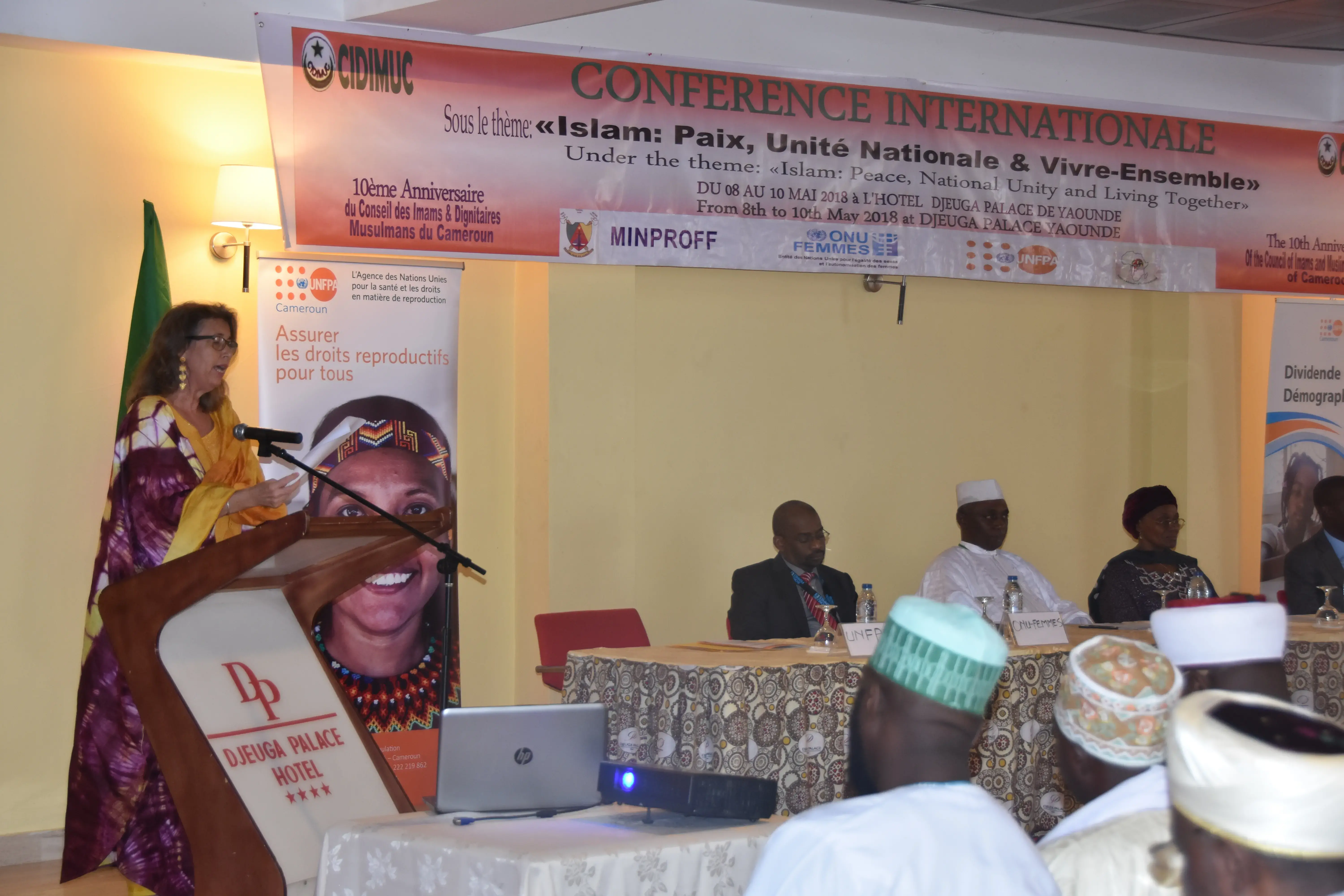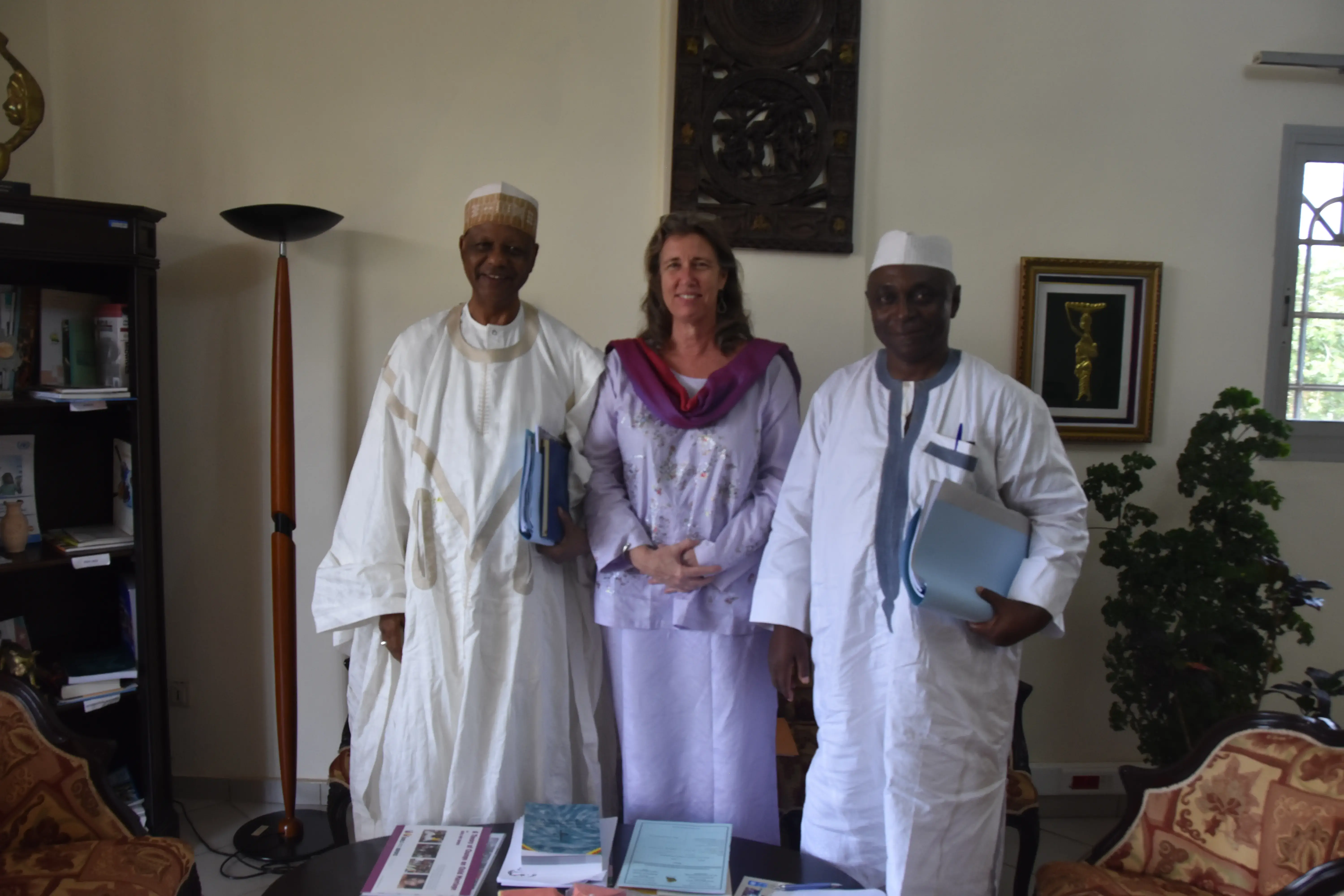Maroua, Cameroon- Raissa Djouma graduated from Garoua midwifery school in 2014. She is among the first cohort of 183 midwives trained in one of the 10 newly created midwifery schools. In 2011, with support from UNFPA and GIZ, the Cameroonian Government reinstated midwifery training after it had been stopped in 1987 due to financial constraints.
For the initial two months from November to December 2015, Raissa was assigned to Gawar integrated health center in the Far North Region to provide sexual and reproductive health and family planning services in an area fraught with humanitarian crises and security risks. It was her first assignment as a professional midwife.
“I thought that everything should be like in school. But when I came there, I realized that it would be different. The maternity was barely equipped with a delivery table in poor condition and we had to juggle with what we had to deliver safely. Sometimes, I had to patch up some equipment in order to use them”, said Raissa.
“The first day, I was scared to examine patients; after a few days, I was surprised by what I have been able to do”, she recalled.
The innovative approach to provide exposure to midwifery graduates under short time assignment in the Far North region affected by the Boko Haram insurgency and its humanitarian implications is an initiative of the Health Ministry with the support of UNFPA. Through this initiative sexual and maternal health services are provided to refugees and internally displaced persons in the region. Under this short assignment programme, so far 12 midwives were assigned to the various health center in the Far North region for two months.
“After their graduation, while waiting for their integration in the public service as civil servants, the newly graduated midwives are given an opportunity to gain more experience while performing humanitarian work” explained Dr Gorse, UNFPA Reproductive Health Expert based in Garoua.
Great memories
Recalling some of the most memorable moments of her assignment Raissa proudly stated that: “One day, a pregnant woman came to the health centre with complications; I helped her deliver safely her baby. After that experience, the woman was so happy that she gave me a food package as a present. When she went back home, she spread the news in the community that there is a skilled midwife at the Gawar health center. It resulted in an increase of the attendance rate of pregnant women. “
During the period of Raissa’s short term assignment the attendance number of pregnant women has increased from 18 to 54, which is possibly due to the spread of the presence of qualified midwives in the Gawar health center.
However, Raissa had her views on the duration of the assignment and in her words: “the assignment was too short, because just when the population knew that there was a qualified midwife in the health centre the attendance rate of the health center started to increase, the assignment has ended”.
“It was a real privilege to do that assignment. Now I feel more confident, I can work everywhere because I have been able to deliver safely in very difficult conditions”, she concluded.Following the success of this initiative, twelve of the short term midwives have been reassigned for a six month period in the Far North region. The six month extension is funded through the Central Emergency Response Fund (CERF) which UNFPA is a recipient to target reproductive and maternal health services in areas along the Cameroon-Nigerian border where health facilities have been compromised due to war and insecurity. This activity falls under UNFPA’s Sexual and Reproductive Health and Rights program, including family planning in humanitarian settings, that aims to create healthy families, by choice and not by chance.
Olive Bonga





